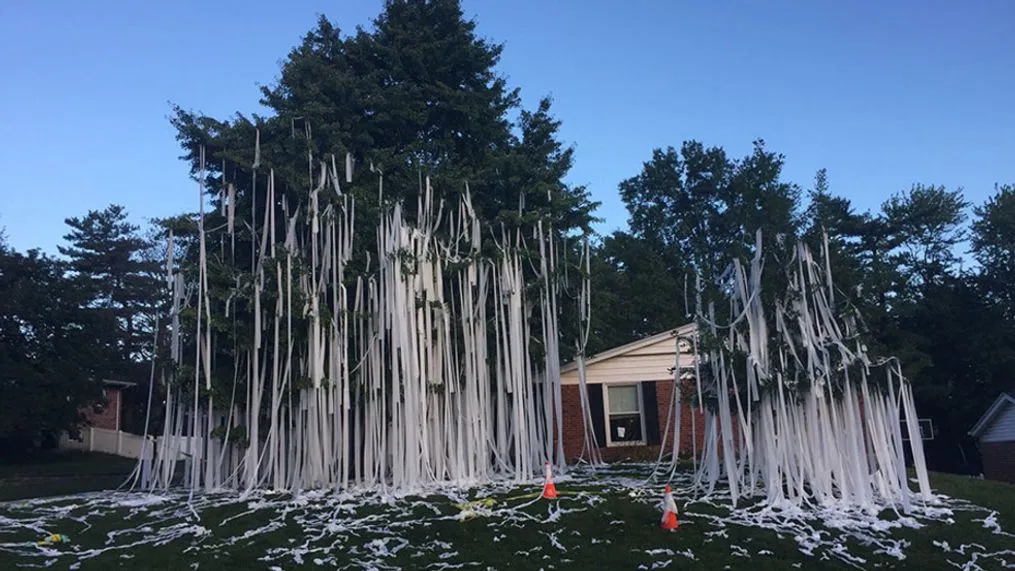(Washington Insider Magazine) – Toilet papering, commonly known as TPing, is a popular activity among teenagers and young adults. It’s often seen as a harmless prank, usually directed at friends or family, where they cover houses, trees, or shrubbery with toilet paper. While it may seem like a fun and innocent act, TPing can actually lead to legal trouble due to various laws that come into play during such activities. So, let’s start to discuss this query: is TPing illegal?
What is TPing?
TPing involves sneaking onto someone else’s property and throwing large amounts of toilet paper around, creating a mess. The goal is usually to annoy or surprise the person on the receiving end. The TP often ends up on the house, vehicles, trees, or lawn, and it can be quite a sight when the unrolling paper reaches high places like tree branches or rooftops.
People may also engage in TPing in places like colleagues’ offices, dorm common rooms, or public bathrooms, aiming to cause annoyance to others. While TPing is generally meant as a light-hearted prank, it’s essential to understand the potential legal ramifications it may carry.
The Legal Issues with TPing: Is TPing Illegal?
The first and most obvious issue with TPing is that it involves trespassing onto someone else’s property without permission. Trespassing is a criminal offense in most jurisdictions. You are breaking the law when entering or remaining unlawfully on someone’s premises, whether it’s their home or any other property they own or manage. The seriousness of the offense can vary depending on factors like previous warnings, intent to commit other crimes, or the type of building entered.
Littering and Disorderly Conduct
TPing also leads to littering, which is considered a crime in many places. Littering involves dropping or scattering waste in areas not intended for disposal, such as throwing toilet paper all over someone’s property. Additionally, TPing may fall under the category of disorderly conduct, as it is intended to be a nuisance, causing annoyance or inconvenience to the property owner.
Criminal Mischief: Causing Damage
Another significant concern with TPing is criminal mischief. This charge applies when a person intentionally interferes with another person’s property, causing substantial inconvenience without the right to do so. If the act of TPing results in damage to the property, such as broken branches, roof tiles, or windows, it could lead to criminal mischief charges. Even hiring someone to clean up the mess caused by TPing might be considered damage under the law.
Utility Disturbances
Moreover, TPing can sometimes disturb utility connections on the property. For instance, if wet toilet paper interferes with water, electricity, or cable lines, additional charges might apply due to its potential danger.
The Verdict on TPing: Is TPing Illegal
In conclusion, while TPing might be seen as a playful and mischievous activity, it does involve various illegal aspects. From criminal trespassing to littering, disorderly conduct, and criminal mischief, engaging in TPing can lead to legal consequences, fines, or criminal records. It’s crucial to understand that even though the act is usually meant as a harmless prank, it can still cause damage, inconvenience, and distress to others.
So, the next time you’re thinking about: Is TPing Illegal or TPing a friend’s house or pulling off a prank, consider the legal implications and opt for fun and harmless activities instead. While it’s essential to have a good time, it should never come at the cost of breaking the law or causing harm to others.


























